Collaboration between HI UNUD and HI UKI in the Book Review Event "Genealogy of Terrorism and Intrusive Systems & Sovereignty"
The book "Intrusive Systems & Sovereignty"
International Relations Study Program, FISIP, Udayana University which held a Book Review event on Wednesday, November 6 2024, which took place in the FISIP Building Hall, Sudirman Campus. With the theme "Genealogy of Terrorism and Intrusive Systems & Sovereignty", this Book Review activity was attended by one resource person who was an academic or practitioner from the Indonesian Christian University, two speakers who were academics and practitioners from Udayana University, and attended by active students of the International Relations study program at Udayana University. This activity is carried out with the aim that we can understand and study knowledge about what an intrusive system and sovereignty are and understand more deeply the genealogy of terrorism.
The resource person, Arthuur Jeverson Maya, S. Sos., M. A., who is one of the HI lecturers at the Indonesian Christian University and also a book author, has explained the contents of the book entitled "Intrusive Systems & Sovereignty" by explaining two pieces of research, namely intrusive systems and sovereignty, in This book explains the definition of an intrusive system, namely the involvement of large countries that are outside the boundaries of one region. This book explains four indicators which consist of 4 indicators, namely, bilateral arrangements, multilateral arrangements, military intervention and economic arrangements. "It was explained why there was no major war in Southeast Asia because of the intrusive system, while there was no open war in the South China Sea because of Xi Jinping's discourse," he said.
First Surgeon, A.A Bagus Surya Widya Nugraha, S.IP., M.Si who is one of the HI lecturers at Udayana University, summarized the book written by Mas Arthuur regarding intrusive systems & sovereignty, related to democracy, namely countries that adhere to this system do not will fight each other, in Southeast Asia apparently there is no war and perhaps this can be said to be an intrusive system with which a region can maintain security and stability within the region. The strength of the intrusive system that prevents war from occurring in the Southeast Asian region which is dependent on a large region, Mr. Surya also raises the question of why there is no war in the Southeast Asian region?, and is there a colonial or post-colonial legacy in this Asian region?, with its existence In this book we can study Southeast Asia very broadly and this study is studied directly by Southeast Asia, not by external Asia. "he said
Second Surgeon, Penny Kurnia Putri, S.Sos., M.A. who is one of the HI lecturers at Udayana University, the writer Mr. Arthuur has already said that perhaps we can see this intrusive system from a region. As for the question from Mrs. Penny, namely whether it can compete with other countries and is there any relevance if this intrusive system is pulled out of the region Southeast Asia. "We can see from the spotlight on Israel and areas that are happening in the Middle East that it can be relevant to be handled using an intrusive system," he said.
Then, after discussing the first book regarding "Intrusive Systems & Sovereignty" it was continued with a question and answer session between the participants, the resource person and two other reviewers regarding the book topic being discussed. After that, the event continued with a discussion of the second book, namely "Genealogy of Terrorism"
The book "Genealogy of Terrorism"
The resource person, Arthuur Jeverson Maya, S. Sos., M. A. who is one of the HI lecturers at the Indonesian Christian University, explained about genealogy which according to Mr. Arthuur is that history is not a past event and is not a future event, so genealogy is something different from history what is the power relation of knowledge that occurred on that day or in other cases in history is today's events. We will see this genealogy in a mixed flow, not a periodic one, if it is related to the nine eleven event which is the biggest shift regarding terrorism, the biggest shift in discourse, the power of knowledge and the biggest history in terrorism. Terrorists are not actually Muslims, but because of the shift from John Buss, there was a shift in the definition of terrorism, but in this book, it explains that terrorism is not something like that. The first terrorism occurred because of rebellion, there was a shift from rebellion to tyranny. "The point of this book is to show that there are things about terrorists," he said
First Surgeon, Penny Kurnia Putri, S.Sos., M.A. who is one of the HI lecturers at Udayana University, regarding the contents of this genealogy book about terrorism which actually arises from the cosmic or tracing discursive formations, in the terminology of terrorism which starts from the beginning of life by defining the first terrorism that occurred because of a rebellion which ultimately gave rise to violence. In the following period, there was a shift in meaning from the aspect that was interpreted as rebellion, then into tyrannical elements who carried out acts of terrorism, namely the leaders in the Greek costal state, then expanding to Rome. As for the actors who define terrorism, namely Hitler and Stalin, the terrorist actors are countries that change the shift regarding the definitions of terrorism. "he said
Second Surgeon, A.A Bagus Surya Widya Nugraha, S.IP., M.Si who is one of the IR lecturers at Udayana University, according to Mr. Surya, the first thing about terrorism depends on its meaning, on how someone can be considered a terrorist, terrorism cannot be separated from some knowledge which is a form of construction from a person. "We are encouraged to think as narrowly as possible about the meaning of something," he said
This book review activity was then continued with a question and answer session between the participants and the resource person and two other reviewers regarding the book topic being discussed. Participants who actively asked questions were also given gifts in the form of books and tote bags. This session then continued with the presentation of certificates to the resource persons and two surgeons. After that, the Book Review event closed with a documentation session from participants who actively asked questions, then documentation of the certificate handover and ended with a group photo.
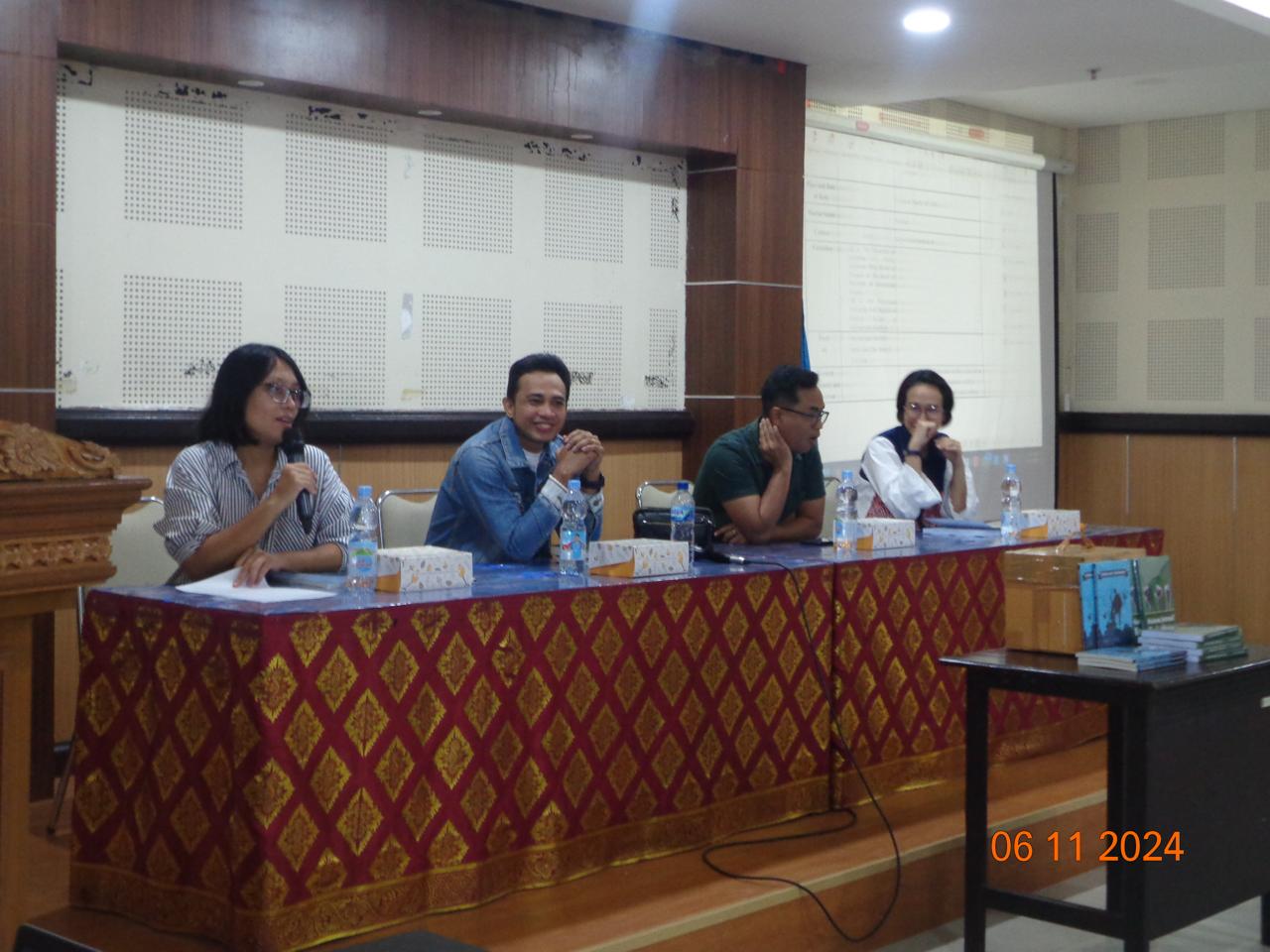
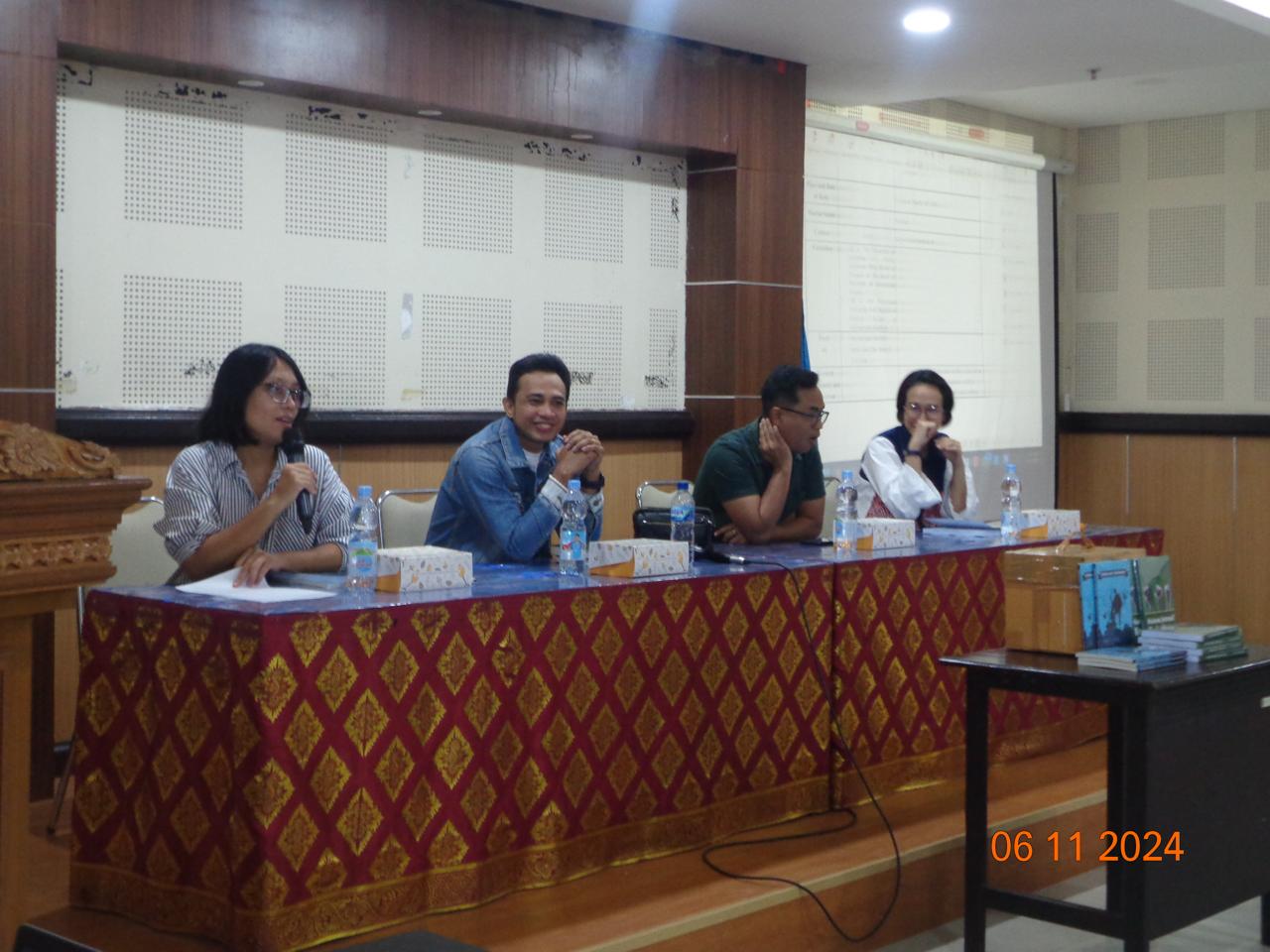
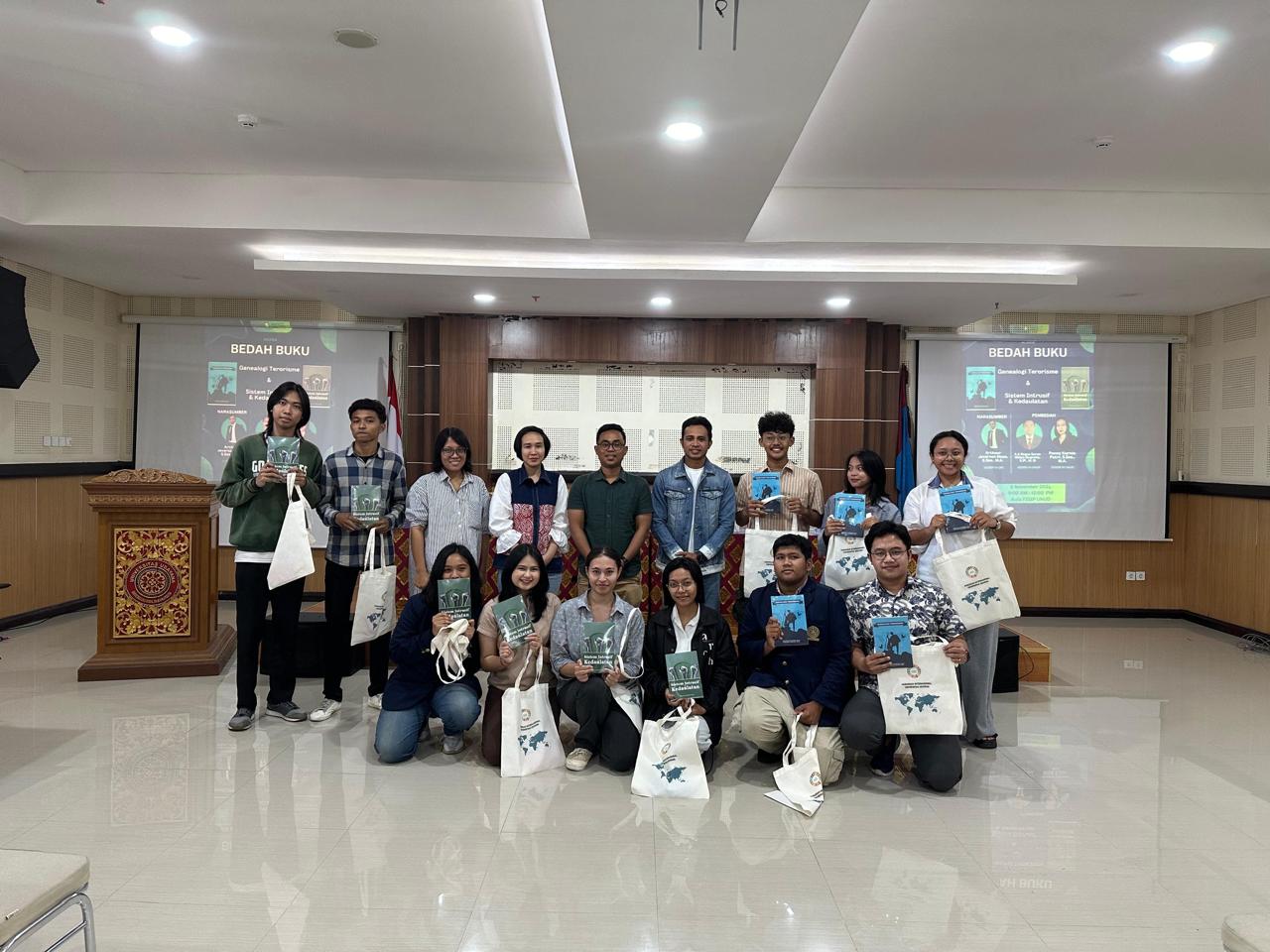
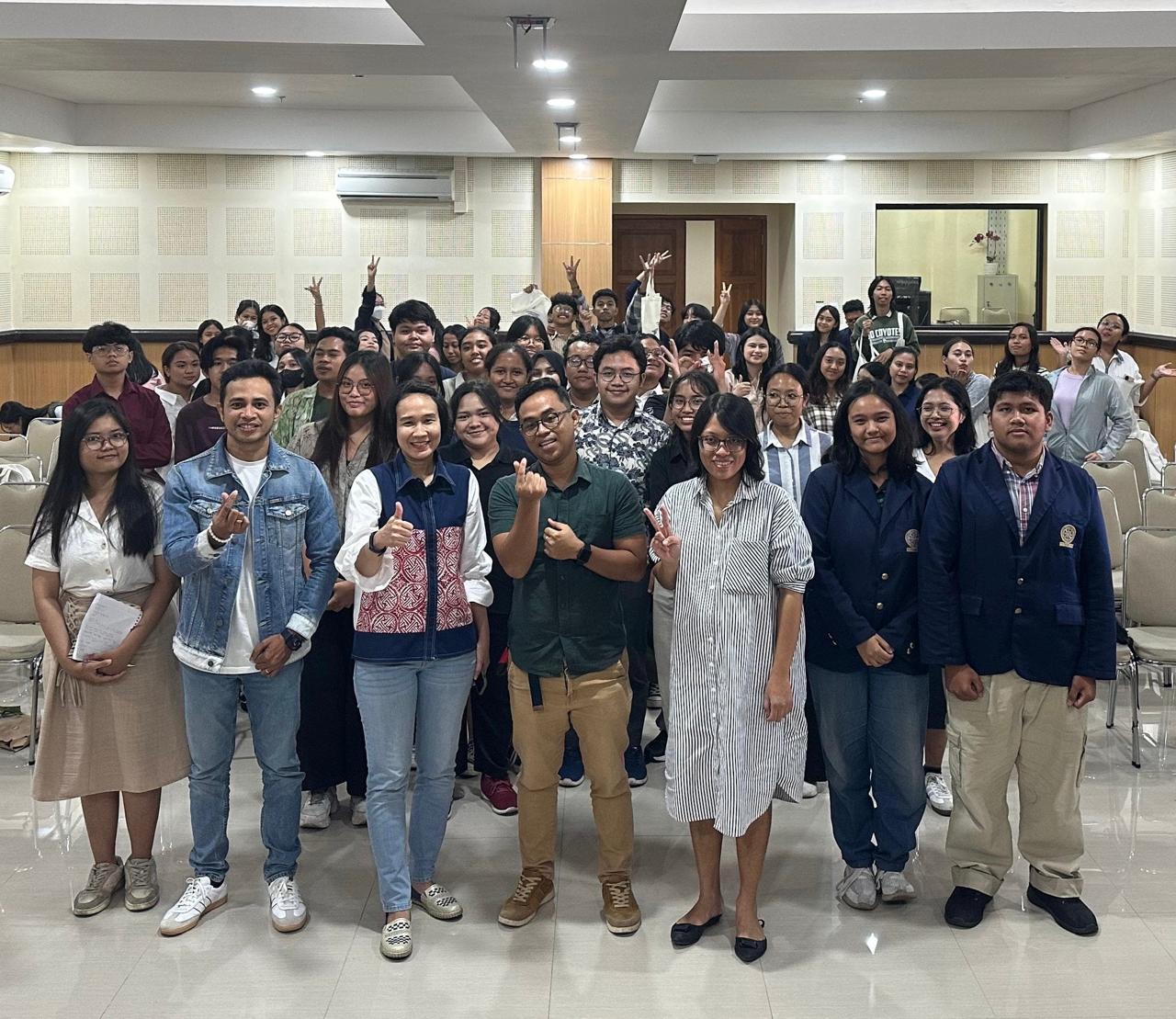
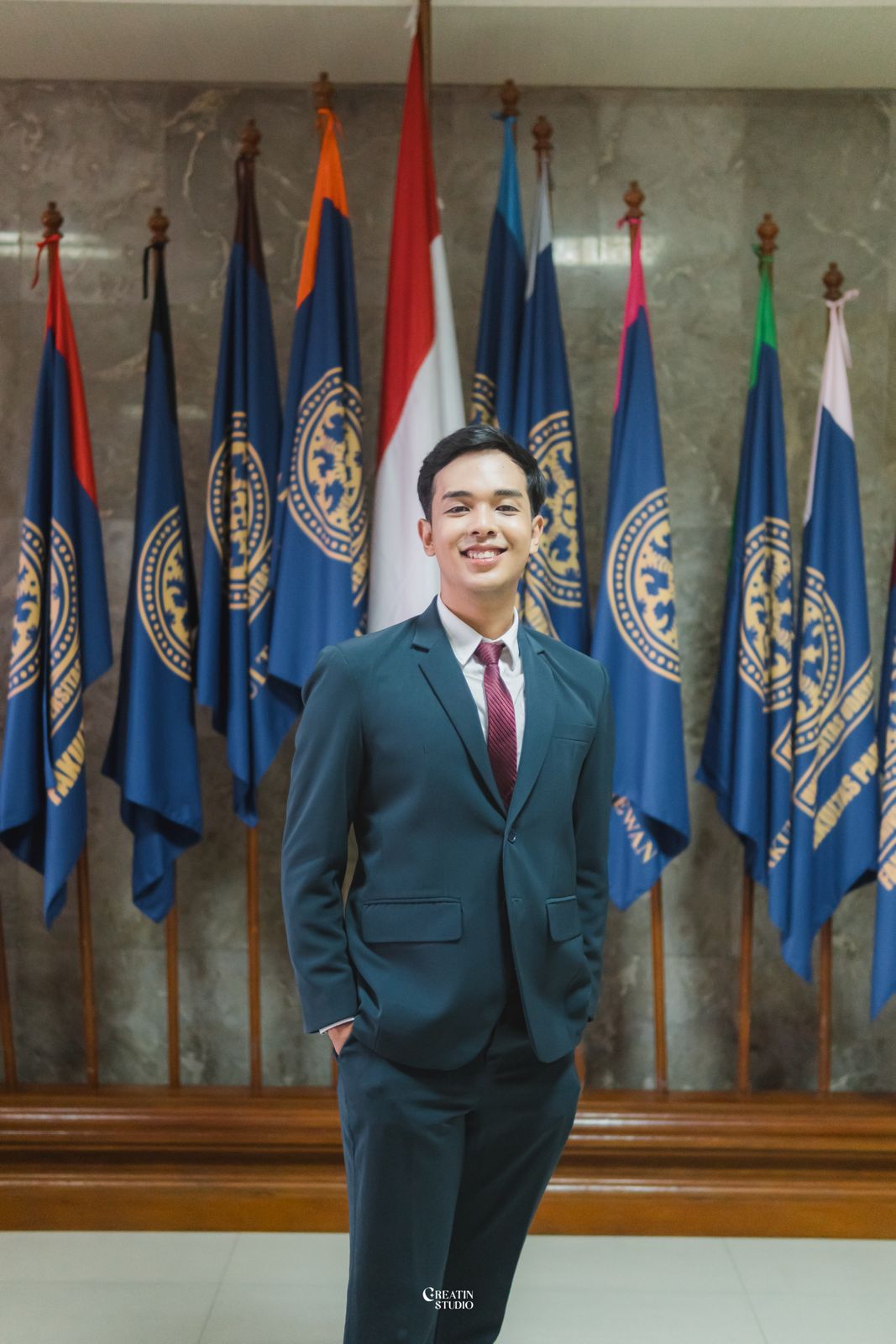
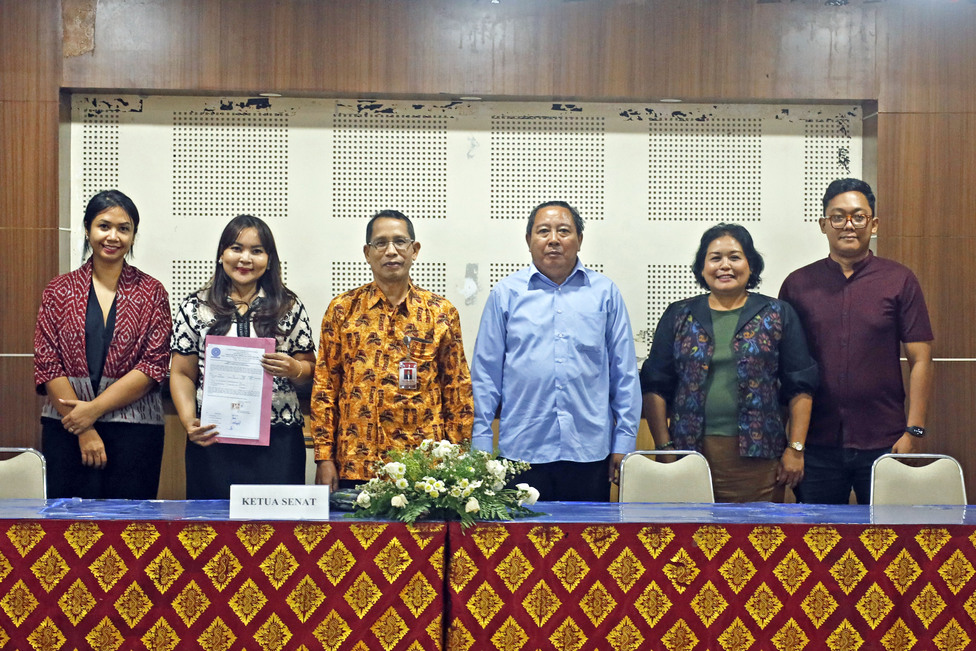
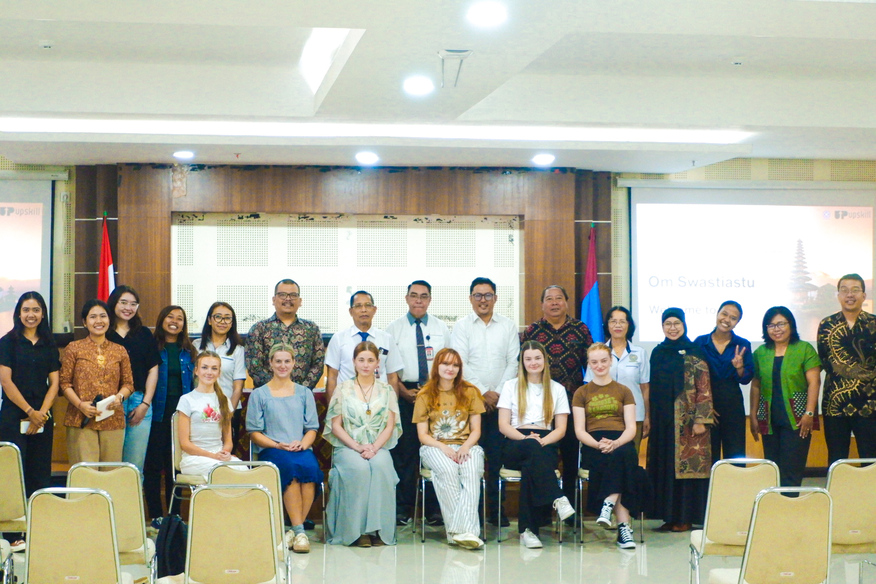
UDAYANA UNIVERSITY